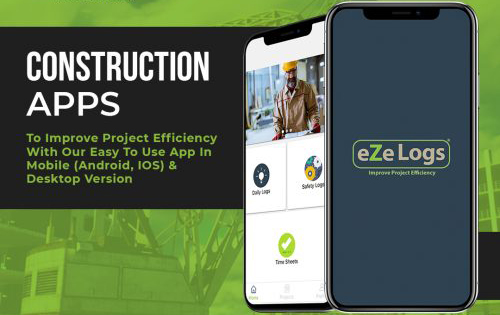The construction industry has undergone significant transformations over the past few decades, with advancements in technology playing a crucial role. Traditional methods of managing construction projects, which often relied on manual processes and paper-based documentation, are gradually being replaced by more efficient, digital solutions.

Construction software has emerged as a key tool in this evolution, providing project managers and teams with the ability to streamline workflows, improve communication, and enhance overall project efficiency.
Understanding Construction Software
Construction software encompasses a wide range of digital tools and platforms designed to assist in the planning, execution, and management of construction projects. These tools can vary from simple scheduling applications to comprehensive project management systems that integrate various aspects of a construction project, such as budgeting, resource allocation, communication, and quality control. The primary goal of construction software is to optimize the various processes involved in a construction project, reducing errors, improving coordination, and ultimately delivering projects on time and within budget.
Streamlining Project Planning and Scheduling
One of the most significant impacts of construction software is its ability to streamline project planning and scheduling. Construction projects are inherently complex, with multiple tasks and deadlines that need to be carefully coordinated. Construction software allows project managers to create detailed schedules that outline each phase of the project, assign tasks to specific teams, and set realistic deadlines. These digital tools also enable the tracking of progress in real-time, allowing for adjustments to be made as necessary. This level of precision and flexibility in planning helps to prevent delays and ensures that the project remains on track.
Enhancing Communication and Collaboration
Effective communication and collaboration are essential for the success of any construction project. With multiple stakeholders involved, including architects, engineers, contractors, and clients, maintaining clear and consistent communication can be challenging. Construction software provides centralized platforms where all stakeholders can share information, updates, and documents. This eliminates the need for fragmented communication channels, such as emails or phone calls, which can lead to misunderstandings and delays. By fostering better communication and collaboration, construction software ensures that everyone is aligned and working towards the same objectives.
Construction Software and Resource Management
Resource management is a critical aspect of construction project efficiency. Proper allocation of resources, including labor, materials, and equipment, can make the difference between a successful project and one that suffers from delays and cost overruns. Construction software offers tools for tracking and managing resources in real-time, providing project managers with a clear view of resource availability and usage. This enables better decision-making when it comes to allocating resources, ensuring that the right amount of labor and materials are available when needed, and reducing the risk of wastage or shortages.
Improving Budgeting and Cost Control
Budgeting is another area where construction software has a profound impact. Managing a construction budget requires careful monitoring of expenses, tracking of payments, and forecasting of future costs. Construction software provides project managers with the tools to create detailed budgets, monitor spending, and generate financial reports. These tools also allow for real-time tracking of costs, helping to identify any deviations from the budget early on. By providing a clear and accurate picture of the financial status of a project, construction software helps to keep projects within budget and avoid unexpected financial challenges.
Enhancing Quality Control and Compliance
Quality control is an essential component of any construction project, ensuring that the final product meets the required standards and specifications. Construction software plays a vital role in enhancing quality control by providing tools for tracking inspections, managing compliance documentation, and recording defects or issues. These digital tools allow for systematic quality checks at various stages of the project, ensuring that any problems are identified and addressed promptly. Additionally, construction software can help manage compliance with industry regulations and standards, reducing the risk of legal issues or penalties.
Risk Management and Issue Resolution
Construction projects are often subject to various risks, including delays, safety incidents, and unforeseen challenges. Effective risk management is crucial for maintaining project efficiency. Construction software provides project managers with tools to identify potential risks, assess their impact, and develop mitigation strategies. By enabling proactive risk management, these tools help to minimize the impact of risks on the project timeline and budget. Additionally, construction software can streamline the resolution of issues that do arise, ensuring that they are addressed quickly and do not escalate into larger problems.
Supporting Data-Driven Decision Making
In the modern construction industry, data is a valuable asset that can drive better decision-making and improve project outcomes. Construction software generates and collects vast amounts of data throughout the project lifecycle, from initial planning to project completion. This data can be analyzed to gain insights into project performance, identify trends, and make informed decisions. For example, data on resource usage can help optimize future allocations, while analysis of past project timelines can inform more accurate scheduling. By leveraging data, construction software enables project managers to make decisions based on evidence rather than intuition, leading to more efficient project execution.
Facilitating Remote and Mobile Work
The nature of construction work often requires teams to be dispersed across multiple locations, including job sites, offices, and remote environments. Construction software facilitates remote and mobile work by providing cloud-based platforms that can be accessed from any location. This flexibility allows project managers and team members to stay connected and manage tasks regardless of where they are. Mobile applications enable on-site personnel to input data, update progress, and communicate with the office in real-time, ensuring that the project remains coordinated and efficient, even when teams are not physically together.


